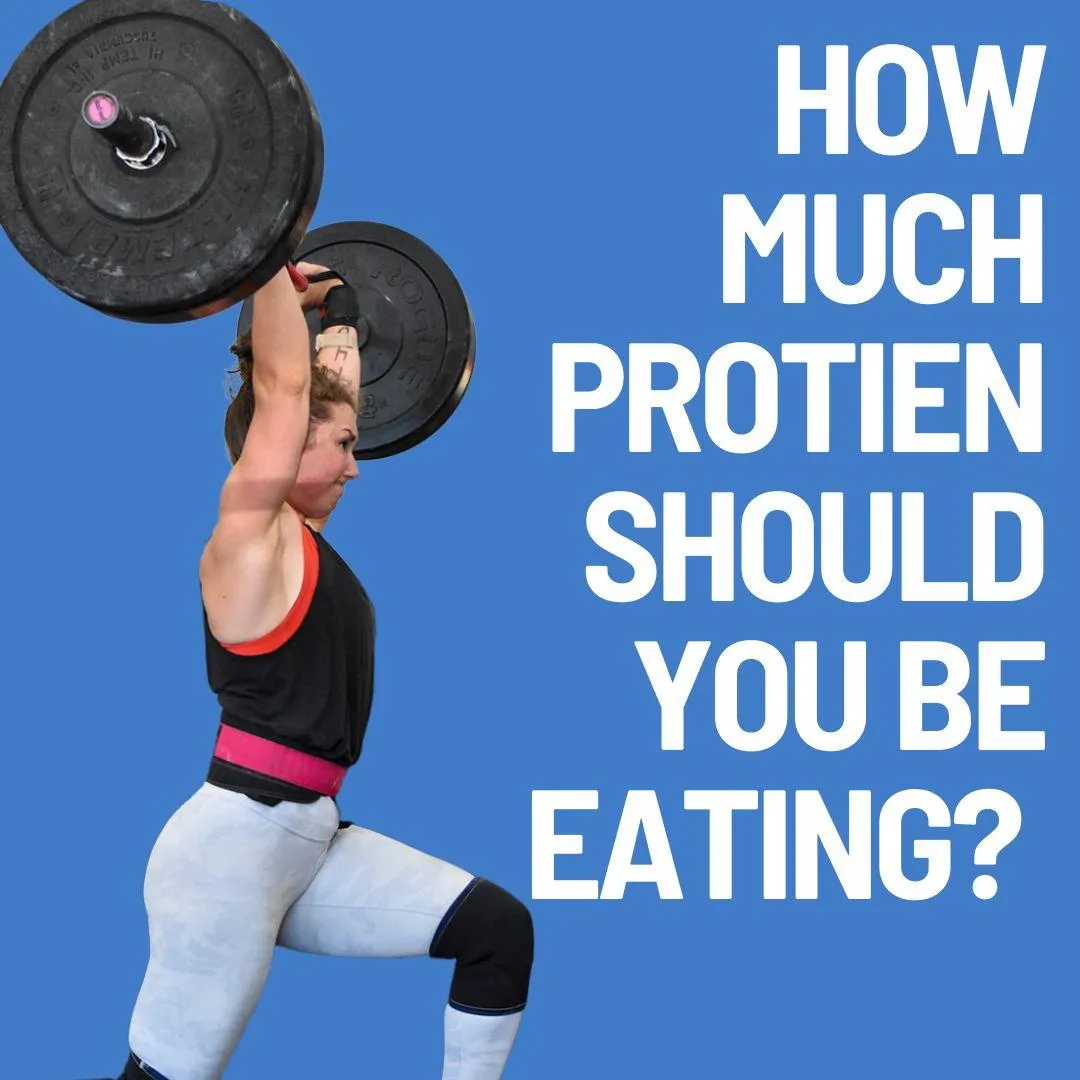Welcome to the Blog!
This is a space to teach you about important nutrition science, habit formation & strategies that help my clients see success.

How Much Protein Should You Be Eating?
“When life gives you lemons, you ask for something higher in protein” - unknown
Introduction:
Ever wondered how much protein you should be consuming each day? Let me help you figure that out.

That answer depends on your goals.
Are you trying to lose weight?
Are you just pursuing better health?
Are you trying to gain muscle and improve performance?
Are you an endurance athlete? (0.7-0.9g/kg)
Are you a strength and power athlete?
Are you just pursuing better health?
Because all of these goals have different requirements.
The general recommended daily allowance (RDA) is 0.8 g of protein per Kg of body weight or 0.36g per pound of body weight.
But we should note the RDA is meant to meet your BASIC nutritional needs. You may need more depending on your lifestyle, activity level or if you are an athlete.
Protein recommendations for athletes or very active people are usually around 1g per lb of lean body mass. This aids the repair and growth of muscle after exercise. This also greatly helps with satiety (aka the feeling of being full and stratified after eating).
Therefore, this higher protein recommendation is often carried over into the fat loss realm of nutrition because this macronutrient is the MOST satiating for the LEAST amount of calories. One gram of protein equals 4 calories. Fat is another highly satiating macronutrient , but 1 gram of fat equals 9 calories.
Carbohydrates are the LEAST satiating because they cause the release of insulin. Insulin is the hormone that stimulates the lowering of blood sugar but if excessive sugar/simple carbohydrates are consumed, then the body might try to overcompensate by lowering blood sugar too fast with a big dose of insulin. This might lower the blood sugar too low - causing you to reach for the sugary snack just a few hours after eating that high carb meal. An example of this? Sugary cereal with little fiber and nonfat milk at 7am often leads to a dyer coffee and muffin break at 9-10am. The cycle continues with you starving for lunch at 12 and falling asleep at 2-3pm, again reaching for something sugary to pick your energy levels back up.
How do you avoid this sugar roller coaster? By adding a sufficient protein source at EVERY meal! I am to get a minimum of 20- 40g of protein at each meal. This keeps me fueled and my hunger low for 5+ hours until my next meal. This strategy often ELIMINATES the need for snacks! Think of all the money and extra calories you will save if you didn’t need to stock your desk full of snack bars!
What does 20-40g of protein at each meal look like?
Examples: (List in order of least amount of fat to higher per 4 oz servings)
Animal Protein
4 oz egg whites = 13g P (61 cals)
4 oz shrimp cooked = 27g P (112 calories)
4 oz of turkey deli meat = 22-26 g P (121 cals)
4 oz gr turkey (extra lean) = 36g P (171 cals)
4 oz smoked salmon = 20g P (132 cals)
4 oz beef sirloin steak = 39g P (181 cals)
4 oz chicken breast = 35g P (196 cals)
4 oz chicken thighs = 31g P (196 cals)
4 oz ground bison = 29g P (202 cals)
4 oz whole eggs = 14g P (175 cals)
4 oz gr beef (90% lean) = 30g P (242 cals)
4 oz pork chops = 32g P (242 cals)
4 oz ground turkey (7% fat, 93% lean) = 30g P (242 cals)
Vegan Protein
4 oz seitan = 24g P (120 cals)
4 oz miso = 14.5g P (224 cals)
4 oz natto = 22g P (240 cals)
4 oz tempeh, cooked = 23g P (221 cals)
**Notice the difference between the calories of each protein source this is due to the calories from fat within this protein source. Choose the leanest protein sources for around workout times and the fatter ones for other times of the day.
Summary:
Incorporate protein (20-40+g) into every meal.
Active people, athletes, or growing kids may have a higher requirement for protein.
Protein can help decrease hunger.
Choose lean sources of protein for quicker digestion around workouts for optimal recovery.
If you need help designing the ideal nutrition plan for you, make sure to contact me at Ali@ParksideNutrition.com
If you want to learn more about Macronutrients (Protein, Carbs & Fats)
For More . . .
Subscribe to the Email List at ParksideNutrition.com so you don't miss a single piece of content that goes out.
Subscribe on YouTube to make sure you don't miss any free training sessions!
Try logging your food for 7-10 days. I recommend the Cronometer App & Website. You will learn a lot about food and how it fuels (or doesn't) fuel your body.
LEARN from that experience, don't judge yourself, just observe & take notes on how you feel based on the food that you eat.
Ask a professional for advice before beginning a strict "diet" they can likely increase the enjoyment, speed & longevity of your results.
Don't miss a thing! Join the Email List!
No spamming - promise. Just lots of nutrition resources, client inspiration, freebies & exclusive offers to help you on your health journey. Unsubscribe at any time.
Join Now!
You don't want to miss out on the Free Sh*t Friday email list!

